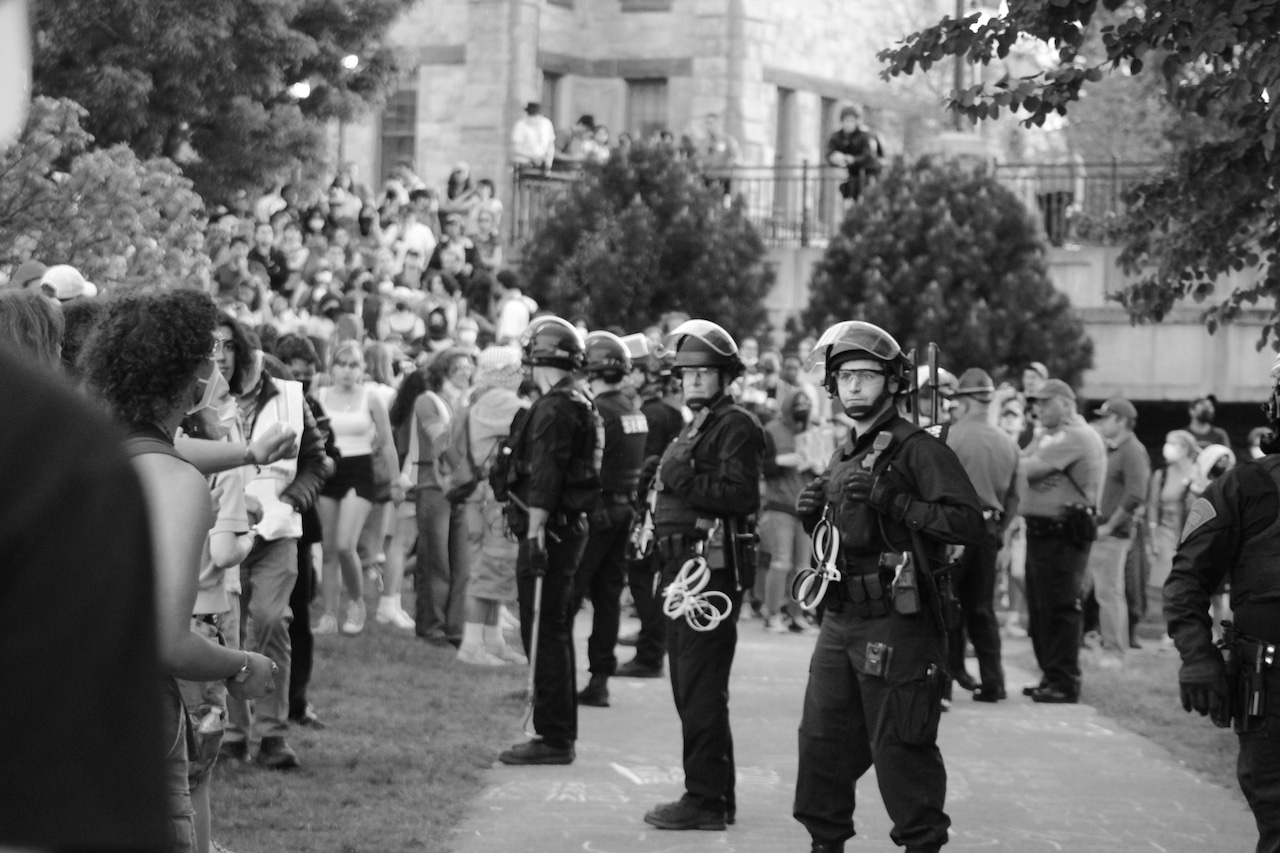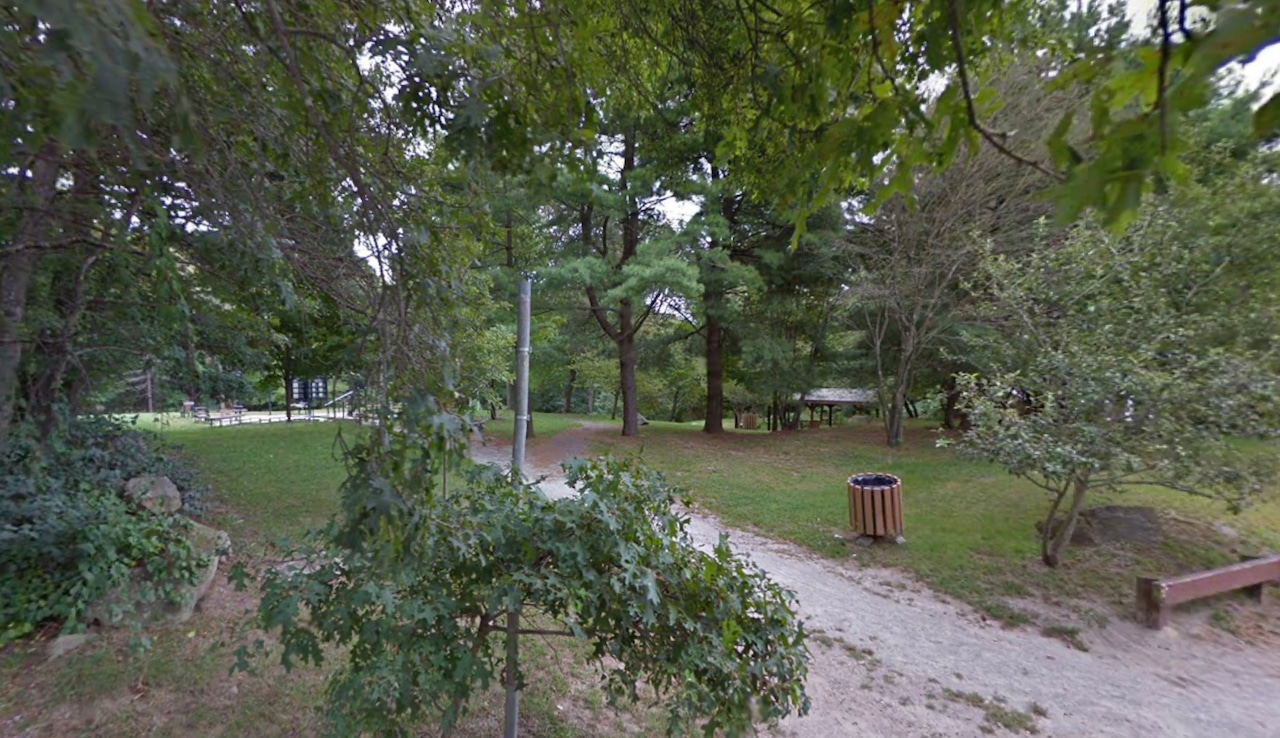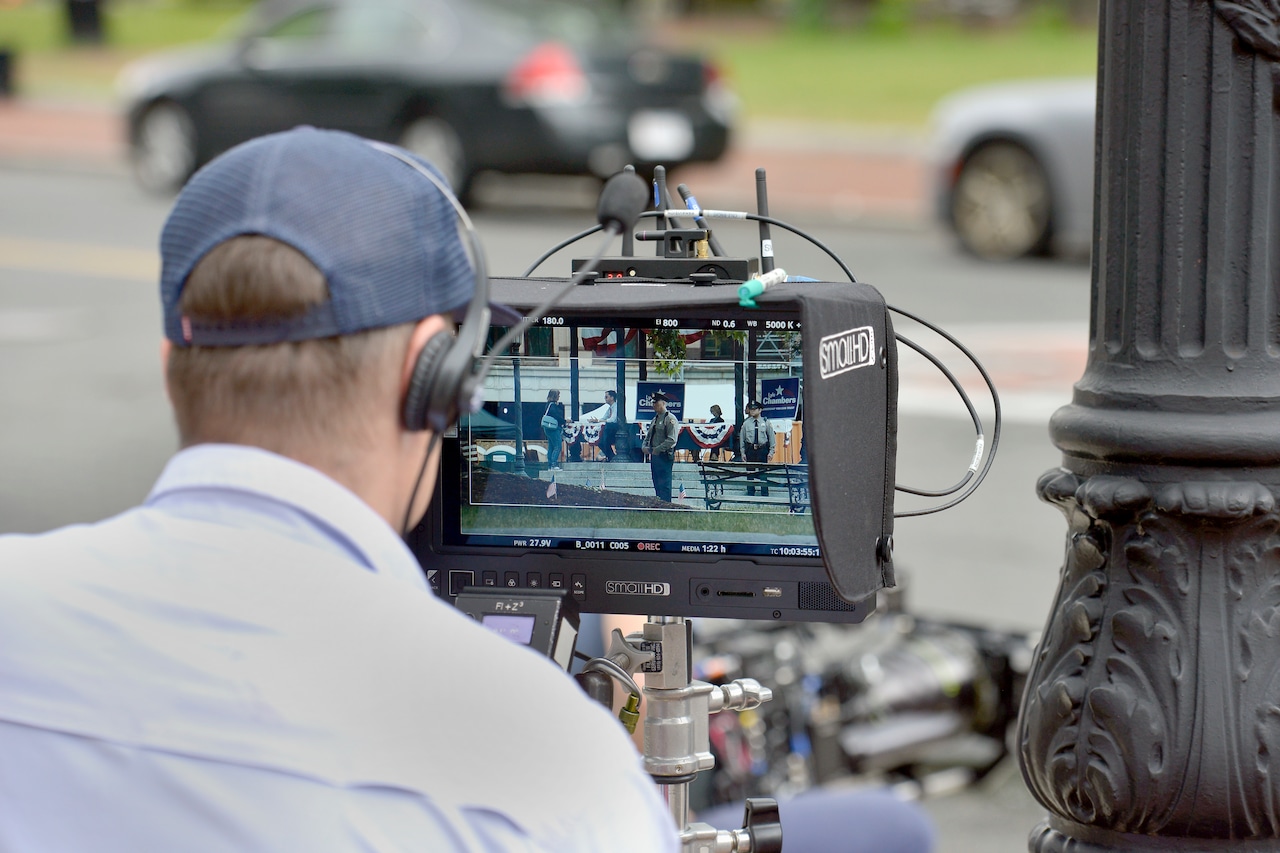
This article was produced by University of Massachusetts Amherst students in journalism professor Steve Fox’s “Introduction to Multimedia” class in collaboration with MassLive.
As tensions around the University of Massachusetts Amherst protest encampment escalated last May, history professor Christian Appy faced a decision — remain with the pro-Palestine supporters or leave to avoid arrest.
“A lot goes into a calculation like that, and some of it is just very pragmatic,” said Appy. “‘Will it do any good for the cause? Will it do any harm to me personally? To my career?’”
He explained that as he was debating, he reflected on the question of what Daniel Ellsberg would do.
Ellsberg — the whistleblower who risked his life in prison to expose the truth about the U.S. government’s behavior in Vietnam and leaked the Pentagon papers to the media in 1971 — is the subject of the Ellsberg Archive Project, a significant University of Massachusetts Amherst research endeavor.
“That made the choice of whether or not to be arrested, in the end, very simple. Of course, I should be arrested, this is what this person I really admire would have done,” explained Appy.
Appy ended up being one of the first protesters to be zip-tied, walked out of the encampment, and placed in a police van to be taken to the UMass Mullins Center.
Walking out, he felt the energy from the crowd, many shouting support for him and opposition to the police. He was one of more than 130 students, faculty, staff, and community members to be arrested the night of May 4, 2024.
Is anyone sorry?
The aftereffects were felt throughout the campus, with many faculty members, Appy included, openly voicing their opposition to UMass Chancellor Javier Reyes’ decision that night to have people arrested.
Appy explained that many students and faculty were looking for “an apology for the arrest … if not an apology, at least some public acknowledgment that different choices might have been made. Or some sense of regret about how things had unfolded.”
While Reyes last summer promised a commitment to more open dialogue at UMass going forward, there has still been no formal apology from the administration.
Reyes declined to comment for this article.
Reyes did recently share the results of an independent review of the administration’s actions last spring, which concluded “with little difficulty” that while the university’s administration was justified in ordering police forces to disperse and remove encampments, additional measures could have been implemented to ensure the safety of students.
The report acknowledges the breach of trust between students and administration, in part stemming from face-to-face negotiations during which both students and administrators attempted to “persuade the other to accede to its major goal,” rather than coming to a compromise.
It also highlights the difference in dynamics between the encampment at UMass Amherst and those which occurred at universities such as Columbia University and the University of California, Los Angeles, where “wait-and-see” strategies were employed to gain a better sense of the encampments trajectory.
While the UMass Amherst administration attributed its choices to protecting students and faculty who may have felt “threatened or alienated by the encampments,” the report concludes that its responsibility is to “promote the well-being of all students and other members of the campus community.”
“The approach taken by the chancellor was marked by a certain amount of inflexibility, even though informed by concerns about safety and precedent,” the report said.
Based on his experiences, Appy said he never felt unsafe at the encampment, neither physically nor verbally, despite Reyes’ claim it was unsafe to both students and educators.
“The only threat to safety came when more than 100 cops from local to state came on campus and started arresting people,” said Appy.
Appy believes the reasons Reyes used for arresting students were “unnecessary, and illegitimate,” and based on a land use policy that he said was a “vague and inconsistently enforced policy.”
Faculty take another stand
On May 20, 2024, more than 1,000 faculty gathered on Zoom and in person for a no-confidence vote calling for Reyes’ immediate resignation. The vote concluded with 473 faculty members voting no confidence, 332 voting against it and at least 20 people abstaining.
Anna Marie LaChance, a UMass Amherst faculty member in the chemical engineering department, supported the vote of no-confidence in Reyes.
“He called the cops on students. It should be as simple as that. If you endanger the lives of your students, I don’t have confidence in your ability to do leadership,” said LaChance.
Even though the vote did not result in Reyes’ resignation, LaChance hopes the administration will be reworked to support student protesters, so police actions will not happen again.
Jenny Adams, an English professor, voted no confidence in Reyes, explaining that the encampment did not justify the university’s response.
“It was not violent … It never disrupted my teaching. It seemed concentrated. And, even if those things hadn’t been the case, there are ways to de-escalate that … don’t involve showing up with over a hundred police officers,” she said.
‘Backing’ students
Last June, Reyes formed the Campus Demonstration Policy Task Force to review policies, procedures, and guidelines relative to campus demonstrations. The group is responsible for creating reports reflecting protection of students’ First Amendment rights and preventing civil disobedience in campus governance, among other duties.
During the fall 2024 semester there were a few minor demonstrations on campus but none of the same magnitude as the May 7 protest. These demonstrations did not elicit response from the state and remained peaceful.
“There definitely needs to be a change in approach when it comes to respecting free speech and respecting students’ right to demonstrate, especially demonstrating peacefully,” explained LaChance.
Stephen Fernandez, an engineering engagement specialist involved in many student support and activist groups on campus, hosts a service learning class where engineering students collaborate with community members as equal partners. He participates in outreach to bring students from underrepresented communities to UMass.
“We can’t let our students be harmed. Our students are doing what’s right, we need to back them, we need to let them know that what they’re doing is right and we need to do all we can to support them in struggling to make a better world,” said Fernandez.
Any regrets?
In addition to the vote of no confidence amounting to little, some are frustrated Reyes has not expressed regret for the decisions made May 7.
Ahead of the new semester, Reyes in August sent out a letter to the community acknowledging the spring semester ended “with significant unresolved issues and fierce disagreements over how our campus community can maintain its commitment to activism without impeding our core mission of education, research and service.”
Reyes acknowledged the importance of debate and said he appreciated those who reached out to discuss concerns.
“UMass is exactly where these difficult conversations should be happening. Our university is a place where ideas are meant to be challenged and viewpoints championed,” he wrote.
Appy said he doesn’t doubt Reyes is committed to open debate, but “I do worry that there are both explicit and subtle messages that are going out, both to students and to faculty, that we need to be careful not to encourage the kind of protests that happened in the spring that we need to avoid the kinds of protests that … make people uncomfortable.”
“Which is different from making people unsafe,” Appy said. “Let’s be clear about that. You can be perfectly safe and still be uncomfortable by ongoing protests.”
Adams said many faculty have defended Reyes, arguing he should be given another chance, interpreting that he thinks he made a mistake. But she pointed out that in all of his emails, and in his response, he has never stated regret for his decisions.
“If you closely read all of his remarks, you’ll see he’s talked a lot about [last year’s events] and about the task force. But if you asked him point blank, ‘Do you feel you made a mistake last spring?’ … I have not heard him ever say yes,” she said.
Eve Neumann can be reached at eneumann@umass.edu, Audrey Falkner can be reached at afalkner@umass.edu, Neela Sullivan can be reached at nwsullivan@umass.edu.






